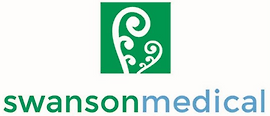West Auckland > GPs / Accident & Urgent Medical Care > ProCare >
Swanson Medical Centre
General Practice (GP) Service
Today
8:00 AM to 5:30 PM.
Covid-19 testing
GP practice - enrolled patients only
This practice provides COVID-19 testing to enrolled patients by appointments only. Please call the practice for more information.
Description
We are a family centred surgery offering a full range of general practice services to you and your family.
Consultations are by appointment only. Our standard consultation time is 15 minutes.
Staff
Our team is made up of GPs (see details below under “Doctors”) and:
Practice Manager: Jayson Gentiles
Nurse Team Lead: Hannah Jenkinson
Nursing Staff: Megan, Anahera, Hannah, Cynthia, Savita, Monica, Rachel, Ami
Receptionists: Julie, Barbara, Gina, Melissa, Virginia, Janine
Health Improvement Practitioner: Christine
Health Coach: Rosanita
Doctors
-

Dr Jeroen De Naegel
General Practitioner
-

Dr Wikitoria Gillespie
General Practitioner - Vocationally Registered
-

Dr Megan Jack
General Practitioner
-

Dr Helen Johnston
General Practitioner - Vocationally Registered
-

Dr Tony Moyle
General Practitioner - Vocationally Registered
-

Dr Sarah Rance
General Practitioner - Vocationally Registered
How do I access this service?
Enrolled patients, Make an appointment
Enrolling new patients
No
This practice is not currently enrolling new patients.
In order to maintain a balance between caring for our existing patients through the upcoming winter period, and welcoming new arrivals to our area, Swanson Medical Centre have started a waiting list system for anyone wishing to enrol with our clinic.
Fees
Enrolled Patient Fees
| Under 14 years | Free |
|---|---|
| 14-17 years | $13 |
| 18-24 years | $19.50 |
| 25-44 years | $19.50 |
| 45-64 years | $19.50 |
| 65+ years | $19.50 |
Hours
8:00 AM to 5:30 PM.
| Mon – Fri | 8:00 AM – 5:30 PM |
|---|
After Hours:
Phone GP practice and follow instructions. You will be transferred to an after-hours service that will direct you either to our preferred after-hours urgent care clinic or Care HQ (Virtual GP consultation service).
We recommend CareHQ as our preferred GP service for patients, after-hours or when we are unavailable. CareHQ is available 7 days a week 7am - 7pm. Find out more. This summer enrolled patients who book through https://book.unifyhealth.co.nz/ will be charged the usual fee. Simply register, then click on the orange CareHQ See A GP Now button.
Public Holidays: Closed ANZAC Day (25 Apr), King's Birthday (3 Jun), Matariki (28 Jun), Labour Day (28 Oct), Auckland Anniversary (27 Jan), Waitangi Day (6 Feb), Good Friday (18 Apr), Easter Sunday (20 Apr), Easter Monday (21 Apr).
Preferred urgent care clinic out of hours: White Cross Henderson - 24/7 Urgent Care.
Languages Spoken
English, Māori, Hindi, Tagalog, Filipino
Services Provided
Immunisation is the safest and most effective way to provide protection for you and your tamariki’s health. For more information view the NZ immunisation schedule.
Immunisation is the safest and most effective way to provide protection for you and your tamariki’s health. For more information view the NZ immunisation schedule.
- Pregnancy vaccinations
- Childhood immunisation programme
- 45 year old vaccinations
- 65 year old vaccinations
- Adult flu vaccine
- Child flu vaccine
- Diphtheria / Tetanus / Pertussis (whooping cough) vaccine
- Human Papillomavirus (HPV) vaccine
- Measles / Mumps / Rubella (MMR) vaccine
- Meningococcal vaccine
- Shingles vaccine
- Travel vaccinations
Immunisation is the safest and most effective way to provide protection for you and your tamariki’s health. For more information view the NZ immunisation schedule.
Your GP's surgery is far more than a place to go when you are feeling unwell and needing a quick cure. The doctor who sees you has gone through an extensive medical training to equip her or him to help children and adults of all ages with a range of physical and emotional difficulties. GPs are at the centre of the healthcare hub and will be aware of services and expertise that are available locally and further-a-field. GPs are also aware of the link that stress and unhappy life events have on physical health so know when to suggest a talking therapy rather than medication.
Your GP's surgery is far more than a place to go when you are feeling unwell and needing a quick cure. The doctor who sees you has gone through an extensive medical training to equip her or him to help children and adults of all ages with a range of physical and emotional difficulties. GPs are at the centre of the healthcare hub and will be aware of services and expertise that are available locally and further-a-field. GPs are also aware of the link that stress and unhappy life events have on physical health so know when to suggest a talking therapy rather than medication.
Your GP's surgery is far more than a place to go when you are feeling unwell and needing a quick cure. The doctor who sees you has gone through an extensive medical training to equip her or him to help children and adults of all ages with a range of physical and emotional difficulties. GPs are at the centre of the healthcare hub and will be aware of services and expertise that are available locally and further-a-field. GPs are also aware of the link that stress and unhappy life events have on physical health so know when to suggest a talking therapy rather than medication.
Primary care practices offer a range of services and are able to deal with most minor accident care. If they are not able to deal with an injury they will refer on to the appropriate service.
Primary care practices offer a range of services and are able to deal with most minor accident care. If they are not able to deal with an injury they will refer on to the appropriate service.
Primary care practices offer a range of services and are able to deal with most minor accident care. If they are not able to deal with an injury they will refer on to the appropriate service.
Minor surgery is commonly provided in primary care practices, providing fast, competent removal and biopsies of skin lesions. Other services include cosmetic work such as removal of benign moles and skin tags. Ingrown toenail surgery is also commonly provided. These conditions do not need to be referred to a hospital, perhaps saving you a long wait or a cancelled appointment when a more serious case takes priority. If your doctor is unable to provide the procedure you need, he/she may know a neighbouring GP who does. Otherwise, the PHO will have a list of GPs trained in particular operations.
Minor surgery is commonly provided in primary care practices, providing fast, competent removal and biopsies of skin lesions. Other services include cosmetic work such as removal of benign moles and skin tags. Ingrown toenail surgery is also commonly provided. These conditions do not need to be referred to a hospital, perhaps saving you a long wait or a cancelled appointment when a more serious case takes priority. If your doctor is unable to provide the procedure you need, he/she may know a neighbouring GP who does. Otherwise, the PHO will have a list of GPs trained in particular operations.
Minor surgery is commonly provided in primary care practices, providing fast, competent removal and biopsies of skin lesions. Other services include cosmetic work such as removal of benign moles and skin tags. Ingrown toenail surgery is also commonly provided.
These conditions do not need to be referred to a hospital, perhaps saving you a long wait or a cancelled appointment when a more serious case takes priority.
If your doctor is unable to provide the procedure you need, he/she may know a neighbouring GP who does. Otherwise, the PHO will have a list of GPs trained in particular operations.
Each GP surgery or primary care practice will have its own procedure for repeat prescribing but the following rules are common to most, if not all. Patients who are well-known to the practice who have a stable condition like asthma, hypertension or diabetes could be allowed to get a repeat prescription for up to six months. Repeat prescriptions are never given to patients who are not known to the practice and there is probably a blanket ban on repeats for narcotics and other drugs that could be misused as doctors are expected to monitor these drugs carefully. At Swanson Medical Centre we can provide phone/portal prescriptions for regular medication for up to six months. Please give at least 24 hours notice for phone/portal prescriptions and tell us the pharmacy name where we can send it electronically. There is a charge of $15 for adults' prescriptions and $10 for children.
Each GP surgery or primary care practice will have its own procedure for repeat prescribing but the following rules are common to most, if not all. Patients who are well-known to the practice who have a stable condition like asthma, hypertension or diabetes could be allowed to get a repeat prescription for up to six months. Repeat prescriptions are never given to patients who are not known to the practice and there is probably a blanket ban on repeats for narcotics and other drugs that could be misused as doctors are expected to monitor these drugs carefully. At Swanson Medical Centre we can provide phone/portal prescriptions for regular medication for up to six months. Please give at least 24 hours notice for phone/portal prescriptions and tell us the pharmacy name where we can send it electronically. There is a charge of $15 for adults' prescriptions and $10 for children.
Each GP surgery or primary care practice will have its own procedure for repeat prescribing but the following rules are common to most, if not all. Patients who are well-known to the practice who have a stable condition like asthma, hypertension or diabetes could be allowed to get a repeat prescription for up to six months. Repeat prescriptions are never given to patients who are not known to the practice and there is probably a blanket ban on repeats for narcotics and other drugs that could be misused as doctors are expected to monitor these drugs carefully.
At Swanson Medical Centre we can provide phone/portal prescriptions for regular medication for up to six months. Please give at least 24 hours notice for phone/portal prescriptions and tell us the pharmacy name where we can send it electronically.
There is a charge of $15 for adults' prescriptions and $10 for children.
Sometimes your doctor needs to take a sample of blood or urine either to discover what is wrong with you or to measure something in your blood so that the right medication is given to you. These tests could be anything from blood sugar to a full blood count or a sample of tissue to test for cancer. While urine can generally be tested in the surgery, blood and other specimens are usually sent away for testing at a laboratory. Most results come back within 48 hours unless a very rare test is needed which has to go to a specialist lab further away when it might take a little longer. It is the policy of Swanson Medical Centre that if the GP is concerned about a test result we will contact you. Of course, if you have not heard from us we are always happy for you to phone the nurse/send a message on portal to your GP/nurse to discuss the results.
Sometimes your doctor needs to take a sample of blood or urine either to discover what is wrong with you or to measure something in your blood so that the right medication is given to you. These tests could be anything from blood sugar to a full blood count or a sample of tissue to test for cancer. While urine can generally be tested in the surgery, blood and other specimens are usually sent away for testing at a laboratory. Most results come back within 48 hours unless a very rare test is needed which has to go to a specialist lab further away when it might take a little longer. It is the policy of Swanson Medical Centre that if the GP is concerned about a test result we will contact you. Of course, if you have not heard from us we are always happy for you to phone the nurse/send a message on portal to your GP/nurse to discuss the results.
Sometimes your doctor needs to take a sample of blood or urine either to discover what is wrong with you or to measure something in your blood so that the right medication is given to you. These tests could be anything from blood sugar to a full blood count or a sample of tissue to test for cancer.
While urine can generally be tested in the surgery, blood and other specimens are usually sent away for testing at a laboratory. Most results come back within 48 hours unless a very rare test is needed which has to go to a specialist lab further away when it might take a little longer.
It is the policy of Swanson Medical Centre that if the GP is concerned about a test result we will contact you. Of course, if you have not heard from us we are always happy for you to phone the nurse/send a message on portal to your GP/nurse to discuss the results.
Liquid nitrogen is a fast, effective treatment provided in many practices to treat viral warts, sun damaged skin, skin tags and many benign cosmetic lesions. It comes in a container with a nozzle and is usually applied by swab or spray. Often one treatment is all that is needed but sometimes it may need repeating after two weeks. Because it cannot be stored for too long, you will often find that your GP will treat a number of patients one after the other. For more information click here. At Swanson Medical Centre we usually have liquid nitrogen available. The nurse will treat with liquid nitrogen at a time to suit you.
Liquid nitrogen is a fast, effective treatment provided in many practices to treat viral warts, sun damaged skin, skin tags and many benign cosmetic lesions. It comes in a container with a nozzle and is usually applied by swab or spray. Often one treatment is all that is needed but sometimes it may need repeating after two weeks. Because it cannot be stored for too long, you will often find that your GP will treat a number of patients one after the other. For more information click here. At Swanson Medical Centre we usually have liquid nitrogen available. The nurse will treat with liquid nitrogen at a time to suit you.
Liquid nitrogen is a fast, effective treatment provided in many practices to treat viral warts, sun damaged skin, skin tags and many benign cosmetic lesions. It comes in a container with a nozzle and is usually applied by swab or spray. Often one treatment is all that is needed but sometimes it may need repeating after two weeks.
Because it cannot be stored for too long, you will often find that your GP will treat a number of patients one after the other.
For more information click here.
At Swanson Medical Centre we usually have liquid nitrogen available. The nurse will treat with liquid nitrogen at a time to suit you.
LARC methods are very effective at preventing unplanned pregnancy and are “fit and forget” forms of contraception – you don’t need to remember them every day or every month. LARC methods: Intrauterine Contraceptive Devices (IUCD or IUD) are inserted through the cervix into a woman’s uterus. IUCDs may be either hormonal (Mirena® or Jaydess® ) or non-hormonal (copper IUCD). Jadelle® is a hormone-releasing implant that is inserted just under the skin of the upper arm. Depending on the type of device, it will need to be changed after between three and ten years. Read more about LARC methods here
LARC methods are very effective at preventing unplanned pregnancy and are “fit and forget” forms of contraception – you don’t need to remember them every day or every month. LARC methods: Intrauterine Contraceptive Devices (IUCD or IUD) are inserted through the cervix into a woman’s uterus. IUCDs may be either hormonal (Mirena® or Jaydess® ) or non-hormonal (copper IUCD). Jadelle® is a hormone-releasing implant that is inserted just under the skin of the upper arm. Depending on the type of device, it will need to be changed after between three and ten years. Read more about LARC methods here
- Implant (Jadelle) removal
- Implant (Jadelle) inserts
- IUD inserts
- IUD removals
LARC methods are very effective at preventing unplanned pregnancy and are “fit and forget” forms of contraception – you don’t need to remember them every day or every month. LARC methods:
- Intrauterine Contraceptive Devices (IUCD or IUD) are inserted through the cervix into a woman’s uterus. IUCDs may be either hormonal (Mirena® or Jaydess® ) or non-hormonal (copper IUCD).
- Jadelle® is a hormone-releasing implant that is inserted just under the skin of the upper arm.
Depending on the type of device, it will need to be changed after between three and ten years.
Read more about LARC methods here
All women and people with a cervix aged 25 – 69 who have ever had intimate skin-to-skin contact or been sexually active should have regular cervical screening. This includes women who have been immunised against HPV. Together, regular screening and HPV immunisation provide the best protection against cervical cancer. There are now more options for how you have cervical screening done: a simple vaginal swab test for HPV, either done yourself or with help from a healthcare professional a cervical sample taken by a healthcare professional (used to be known as a smear test). Talk with your healthcare provider to decide which option is best for you. If HPV is found, you may need to have a follow-up test or be referred directly for colposcopy. If you’ve not yet had HPV testing, you should be screened 3 years after your last test (or 1 year if immune deficient). Once you have had an HPV test, and providing HPV is not found, your next screening will be in 5 years (or 3 years if immune deficient). For more information: Cervical screening | Time to Screen - National Screening Unit
All women and people with a cervix aged 25 – 69 who have ever had intimate skin-to-skin contact or been sexually active should have regular cervical screening. This includes women who have been immunised against HPV. Together, regular screening and HPV immunisation provide the best protection against cervical cancer. There are now more options for how you have cervical screening done: a simple vaginal swab test for HPV, either done yourself or with help from a healthcare professional a cervical sample taken by a healthcare professional (used to be known as a smear test). Talk with your healthcare provider to decide which option is best for you. If HPV is found, you may need to have a follow-up test or be referred directly for colposcopy. If you’ve not yet had HPV testing, you should be screened 3 years after your last test (or 1 year if immune deficient). Once you have had an HPV test, and providing HPV is not found, your next screening will be in 5 years (or 3 years if immune deficient). For more information: Cervical screening | Time to Screen - National Screening Unit
All women and people with a cervix aged 25 – 69 who have ever had intimate skin-to-skin contact or been sexually active should have regular cervical screening. This includes women who have been immunised against HPV. Together, regular screening and HPV immunisation provide the best protection against cervical cancer.
There are now more options for how you have cervical screening done:
- a simple vaginal swab test for HPV, either done yourself or with help from a healthcare professional
- a cervical sample taken by a healthcare professional (used to be known as a smear test).
Talk with your healthcare provider to decide which option is best for you.
If HPV is found, you may need to have a follow-up test or be referred directly for colposcopy.
If you’ve not yet had HPV testing, you should be screened 3 years after your last test (or 1 year if immune deficient). Once you have had an HPV test, and providing HPV is not found, your next screening will be in 5 years (or 3 years if immune deficient).
For more information: Cervical screening | Time to Screen - National Screening Unit
An ECG is a recording of your heart's electrical activity. Electrode patches are attached to your skin to measure the electrical impulses given off by your heart. The result is a trace that can be read by a doctor. It can give information of previous heart attacks or problems with the heart rhythm.
An ECG is a recording of your heart's electrical activity. Electrode patches are attached to your skin to measure the electrical impulses given off by your heart. The result is a trace that can be read by a doctor. It can give information of previous heart attacks or problems with the heart rhythm.
An ECG is a recording of your heart's electrical activity. Electrode patches are attached to your skin to measure the electrical impulses given off by your heart. The result is a trace that can be read by a doctor. It can give information of previous heart attacks or problems with the heart rhythm.
Spirometry is a tool that measures how effectively your lungs are working. It is able to show how much air lungs are able to hold (their volume) and how much air can be breathed in and out (inhaled and exhaled) which is called flow. This tool is used to assess damage caused by conditions like COPD (chronic obstructive pulmonary disease – a group that includes bronchitis and emphysema), pulmonary fibrosis, cystic fibrosis and asthma. Results are shown on a graph called a pneumotachograph. For more information click on the following link http://en.wikipedia.org/wiki/Spirometry
Spirometry is a tool that measures how effectively your lungs are working. It is able to show how much air lungs are able to hold (their volume) and how much air can be breathed in and out (inhaled and exhaled) which is called flow. This tool is used to assess damage caused by conditions like COPD (chronic obstructive pulmonary disease – a group that includes bronchitis and emphysema), pulmonary fibrosis, cystic fibrosis and asthma. Results are shown on a graph called a pneumotachograph. For more information click on the following link http://en.wikipedia.org/wiki/Spirometry
Spirometry is a tool that measures how effectively your lungs are working. It is able to show how much air lungs are able to hold (their volume) and how much air can be breathed in and out (inhaled and exhaled) which is called flow. This tool is used to assess damage caused by conditions like COPD (chronic obstructive pulmonary disease – a group that includes bronchitis and emphysema), pulmonary fibrosis, cystic fibrosis and asthma. Results are shown on a graph called a pneumotachograph.
For more information click on the following link http://en.wikipedia.org/wiki/Spirometry
Another service offered to you at your GP surgery (primary care practice) is advice and immunisation before you go to another country. While you are likely to have the immunisations needed to live in New Zealand, there may be other injections you need to protect yourself before going for example to Africa or South America. In some places you will need protection from rabies or malaria. Yellow fever vaccinations are only available at approved centres; please click here to view the centres in New Zealand. Your doctor will be able to tell you what diseases you will need to be protected from in any named country and advise you on other medical matters.
Another service offered to you at your GP surgery (primary care practice) is advice and immunisation before you go to another country. While you are likely to have the immunisations needed to live in New Zealand, there may be other injections you need to protect yourself before going for example to Africa or South America. In some places you will need protection from rabies or malaria. Yellow fever vaccinations are only available at approved centres; please click here to view the centres in New Zealand. Your doctor will be able to tell you what diseases you will need to be protected from in any named country and advise you on other medical matters.
Another service offered to you at your GP surgery (primary care practice) is advice and immunisation before you go to another country. While you are likely to have the immunisations needed to live in New Zealand, there may be other injections you need to protect yourself before going for example to Africa or South America. In some places you will need protection from rabies or malaria. Yellow fever vaccinations are only available at approved centres; please click here to view the centres in New Zealand. Your doctor will be able to tell you what diseases you will need to be protected from in any named country and advise you on other medical matters.
All New Zealand children are entitled to 11 free health checks from birth to three years. The checks aim to ensure that children are growing and developing as well as possible. Included in the checks are clinical assessment, health education and family/whanau support. Baby checks are at birth and then at 24 hours, five days and around 2-4 weeks. Babies are weighed and measured to ensure that they are developing correctly. These sessions provide a great opportunity for parents to ask questions from an expert and have any problem addressed; difficulties with breastfeeding or sleep for example. They can also be used to discuss immunisations and vaccinations. These checks will be carried out by your lead maternity carer (LMC). Between the ages of 4-6 weeks and three years, there are seven core health checks available, typically these are around 4-6 weeks, 8-10 weeks, 3-4 months, 5-7 months, 9-12 months, 15-18 months and 2-3 years. These checks may be carried out by a Well Child Provider of your choice e.g. Plunket, Maori health provider, community nurse, a general practice team (doctor and practice nurse). Your LMC will be able to give you a list of Well Child Providers in your area. More information about Well Child services is available on the Ministry of Health website.
All New Zealand children are entitled to 11 free health checks from birth to three years. The checks aim to ensure that children are growing and developing as well as possible. Included in the checks are clinical assessment, health education and family/whanau support. Baby checks are at birth and then at 24 hours, five days and around 2-4 weeks. Babies are weighed and measured to ensure that they are developing correctly. These sessions provide a great opportunity for parents to ask questions from an expert and have any problem addressed; difficulties with breastfeeding or sleep for example. They can also be used to discuss immunisations and vaccinations. These checks will be carried out by your lead maternity carer (LMC). Between the ages of 4-6 weeks and three years, there are seven core health checks available, typically these are around 4-6 weeks, 8-10 weeks, 3-4 months, 5-7 months, 9-12 months, 15-18 months and 2-3 years. These checks may be carried out by a Well Child Provider of your choice e.g. Plunket, Maori health provider, community nurse, a general practice team (doctor and practice nurse). Your LMC will be able to give you a list of Well Child Providers in your area. More information about Well Child services is available on the Ministry of Health website.
All New Zealand children are entitled to 11 free health checks from birth to three years. The checks aim to ensure that children are growing and developing as well as possible. Included in the checks are clinical assessment, health education and family/whānau support.
Baby checks are at birth and then at 24 hours, five days and around 2-4 weeks. Babies are weighed and measured to ensure that they are developing correctly. These sessions provide a great opportunity for parents to ask questions from an expert and have any problem addressed; difficulties with breastfeeding or sleep for example. They can also be used to discuss immunisations and vaccinations. These checks will be carried out by your lead maternity carer (LMC).
Between the ages of 4-6 weeks and three years, there are seven core health checks available, typically these are around 4-6 weeks, 8-10 weeks, 3-4 months, 5-7 months, 9-12 months, 15-18 months and 2-3 years. These checks may be carried out by a Well Child Provider of your choice e.g. Plunket, Māori health provider, community nurse, a general practice team (doctor and practice nurse). Your LMC will be able to give you a list of Well Child Providers in your area.
More information about Well Child services is available on the Ministry of Health website.
Our Health Improvement Practitioner will work with you to come up with ways to address obstacles that are getting in the way of health and/or well-being such as: Managing difficult thoughts, and feelings – anxiety, depression, stress, trauma, grief/loss Sleep difficulties New diagnosis Persistent pain Chronic illness/long-term conditions Lifestyle changes - weight gain, healthy eating, stopping smoking Children’s/teenager’s behavioural issues
Our Health Improvement Practitioner will work with you to come up with ways to address obstacles that are getting in the way of health and/or well-being such as: Managing difficult thoughts, and feelings – anxiety, depression, stress, trauma, grief/loss Sleep difficulties New diagnosis Persistent pain Chronic illness/long-term conditions Lifestyle changes - weight gain, healthy eating, stopping smoking Children’s/teenager’s behavioural issues
Our Health Improvement Practitioner will work with you to come up with ways to address obstacles that are getting in the way of health and/or well-being such as:
- Managing difficult thoughts, and feelings – anxiety, depression, stress, trauma, grief/loss
- Sleep difficulties
- New diagnosis
- Persistent pain
- Chronic illness/long-term conditions
- Lifestyle changes - weight gain, healthy eating, stopping smoking
- Children’s/teenager’s behavioural issues
A patient portal is a secure online tool provided by GP practices that can allow convenient access to your health information as well as interaction with the practice e.g. booking appointments and requesting repeat prescriptions. We are using my indici as our patient portal. This is an online tool that will allow you to request repeat prescriptions, book appointments, send a message to your GP, view your invoices and check your results without having to call the practice. To signup for the portal, please call us on 09 833 9433.
A patient portal is a secure online tool provided by GP practices that can allow convenient access to your health information as well as interaction with the practice e.g. booking appointments and requesting repeat prescriptions. We are using my indici as our patient portal. This is an online tool that will allow you to request repeat prescriptions, book appointments, send a message to your GP, view your invoices and check your results without having to call the practice. To signup for the portal, please call us on 09 833 9433.
A patient portal is a secure online tool provided by GP practices that can allow convenient access to your health information as well as interaction with the practice e.g. booking appointments and requesting repeat prescriptions.
We are using my indici as our patient portal.
This is an online tool that will allow you to request repeat prescriptions, book appointments, send a message to your GP, view your invoices and check your results without having to call the practice.
To signup for the portal, please call us on 09 833 9433.
A virtual consultation is a way of having an appointment with your healthcare provider, but not in person. This is usually done via a video app or a phone call. For more detailed information about telehealth consultations, please see the guide from Healthify. We do offer phone/video consults to our enrolled patients. You can book an appointment either through your patient portal or calling us on 09 833 9433. If you have a booked video appointment, you can enter our virtual waiting room by clicking https://swansonmed.doxy.me/ and selecting your GP from the list
A virtual consultation is a way of having an appointment with your healthcare provider, but not in person. This is usually done via a video app or a phone call. For more detailed information about telehealth consultations, please see the guide from Healthify. We do offer phone/video consults to our enrolled patients. You can book an appointment either through your patient portal or calling us on 09 833 9433. If you have a booked video appointment, you can enter our virtual waiting room by clicking https://swansonmed.doxy.me/ and selecting your GP from the list
- Telehealth consultations for enrolled patients only
- Video consultations
- Phone consultations
- Chat
A virtual consultation is a way of having an appointment with your healthcare provider, but not in person. This is usually done via a video app or a phone call. For more detailed information about telehealth consultations, please see the guide from Healthify.
We do offer phone/video consults to our enrolled patients. You can book an appointment either through your patient portal or calling us on 09 833 9433.
If you have a booked video appointment, you can enter our virtual waiting room by clicking https://swansonmed.doxy.me/ and selecting your GP from the list
Disability Assistance
Wheelchair access
Online Booking URL
Parking
The clinic has 9 carpark spaces available at the back of the building and 2 cars at the front plus one designated disabled parking in the front. Cars may also park off-street.
Website
Contact Details
714 Swanson Road, Swanson, Auckland
West Auckland
8:00 AM to 5:30 PM.
-
Phone
(09) 833 9433
-
Fax
(09) 832 1206
Healthlink EDI
swansnmc
Email
Website
714 Swanson Road
Swanson
Waitakere 0612
Street Address
714 Swanson Road
Swanson
Waitakere 0612
Postal Address
714 Swanson Road
Swanson
Waitakere 0612
Would you recommend this service to family & friends?
Was this page helpful?
This page was last updated at 9:22AM on February 28, 2024. This information is reviewed and edited by Swanson Medical Centre.

